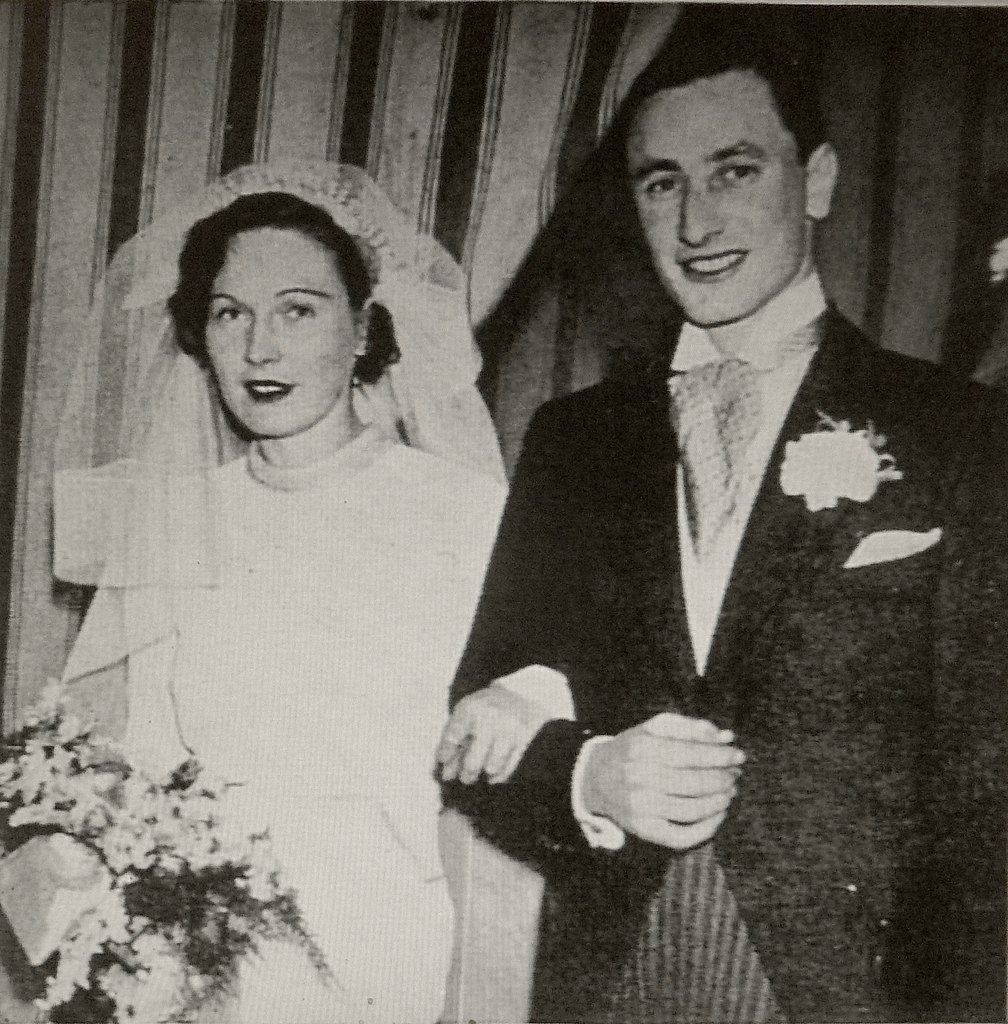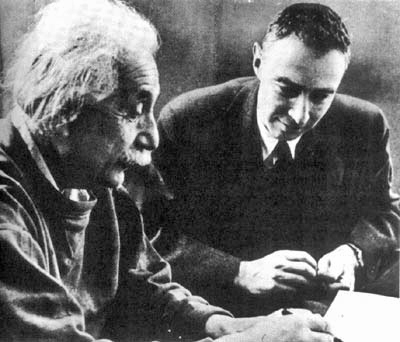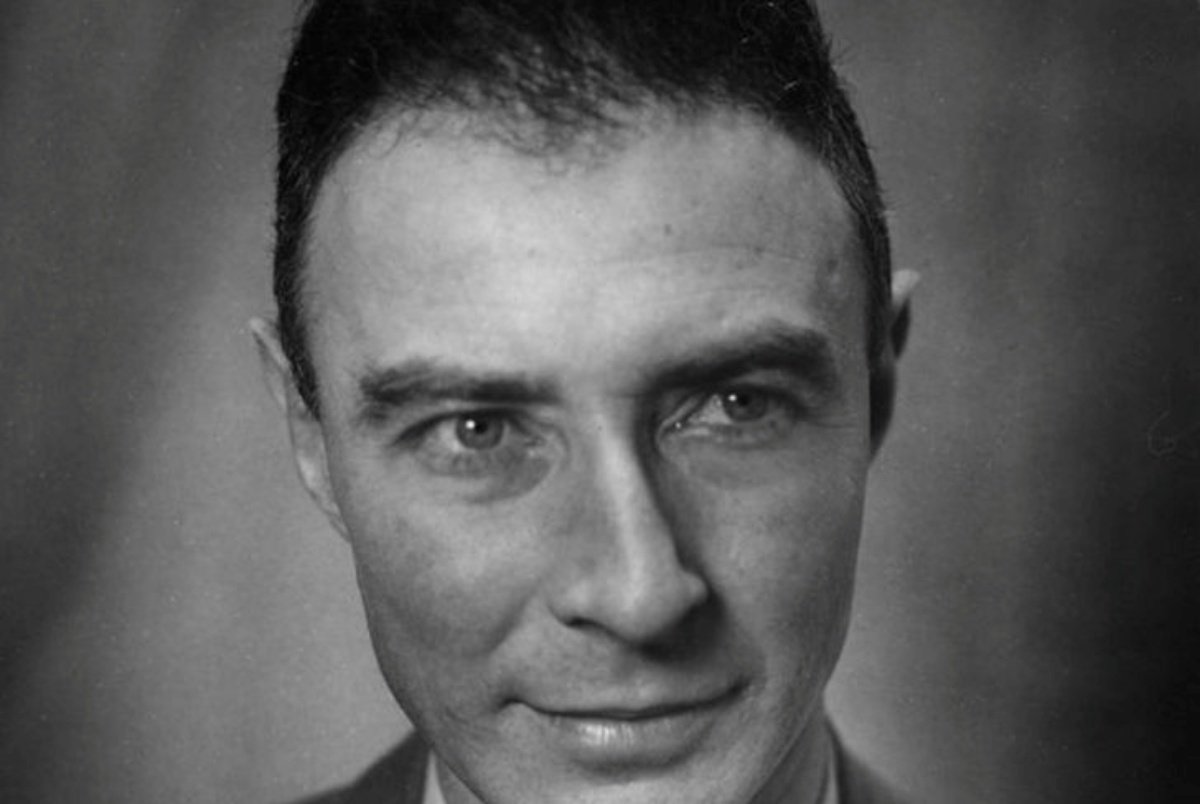Robert Oppenheimer was born on April 22, 1904 in New York. His parents, the sons of a painter and a German textile importer, thought that their son would one day will change human history forever.. Young Robert would become a key player in the invention of the atomic bomb years later.
However, the boy from a Jewish family still had a long way to go before he could become a famous physicist. Learn more about the life and work of someone considered to be one of the heroes of the 20th century’s most remarkable event.
Julius Robert Oppenheimer graduated top of his class from the New York School of Ethical Culture at the age of 17. For the parents, this was not a surprise. Young grew up in an apartment on the 11th floor of 155 Riverside Drive in Manhattan, surrounded by works by artists like Van Gogh and Picasso.
His father, who came to America in 1888 without even knowing English, managed to make a small fortune in America and was able to provide his children with an education they never had. Robert was accepted into Harvard at the age of 18 to earn a degree in chemistry.
He excelled in many subjects throughout his academic career, but mainly in physics. first year began developing independent studies. In 1925 he went to Cambridge, England to work as an assistant to JJ Thomson, who discovered the electron in the Cavendish laboratory.
years in Europe
Despite his brilliance, Oppenheimer was not very well suited to bench work in laboratories. The following year, he went to the University of Göttingen, Germany, to study quantum physics as a student of Max Born.
Germany saw an abundance of great minds pass through its universities in that decade. Names like Heisenberg, Pascual Jordan, Pauli, Paul Dirac, Fermi, and Edward Teller were scientists, and Oppenheimer knew them all.
In this scenario, where scientific ideas are heatedly debated, Oppenheimer earned his doctorate at the age of 23. several contributions to the field of quantum mechanics. The most famous of these is Born-Oppenheimer’s theory of approximation, and is his most cited work to date.

When he returned to the United States in 1929, he was invited to work at two of the country’s most important universities, the California Institute of Technology – Caltech and the University of California. Unable to choose, the physicist began to divide his time between the two.
Over the years, Oppenheimer began to attract a number of bright young students around him. He is considered one of the greatest American physics professors to date, and he continued to develop a number of scientific research with his students.
When his father died in 1937, Robert and his younger brother Frank, who was also a great physicist, shared the remaining inheritance. Three years later, Oppenheimer married a biologist, Katharine Harrison, with whom he had two children. At that time, the Second World War began.
What did Robert Oppenheimer do?
In 1942, during the greatest conflict humanity has ever seen, the US government sent everything it could to war, including its physicists.
The Americans intended to use newly discovered nuclear technology to develop weapons of mass destruction that could be used in conflict. For this he called in some of the country’s brightest minds. This is how Oppenheimer was assigned to the Manhattan Project.
He was responsible for overseeing the Los Alamos laboratory. The following years are the most famous and controversial years of the physicist’s life. HE IS worked resolutely in the development of an atomic bombWith the belief that the Germans will be one step ahead in this quest.

[In1945twoatomicbombswouldbedroppedonthecitiesofJapan’sHiroshimaandNagasakiwhichwouldresultinthecountry’sincome[1945’teJaponya’nınHiroşimaveNagazakişehirlerineikiatombombasıatılacakvebudaülkeningelirineyolaçacaktıAlmanyazatenaylarönceteslimolmuştuTahminleregöretoplamdayaklaşık250000kişiöldürüldü
After the war, Oppenheimer led the establishment of the Atomic Energy Commission and opposed the creation of an even more powerful weapon of mass destruction, the hydrogen bomb. During the Cold War, in the 1950s, he was investigated and dismissed by the government for continuing his firm opposition to the project.
The famous smoker dies of throat cancer in 1967. Known worldwide as the Father of the Atomic Bomb, he left a legacy in the scientific community and a mark in human history.
Source: Tec Mundo
I am Bret Jackson, a professional journalist and author for Gadget Onus, where I specialize in writing about the gaming industry. With over 6 years of experience in my field, I have built up an extensive portfolio that ranges from reviews to interviews with top figures within the industry. My work has been featured on various news sites, providing readers with insightful analysis regarding the current state of gaming culture.













